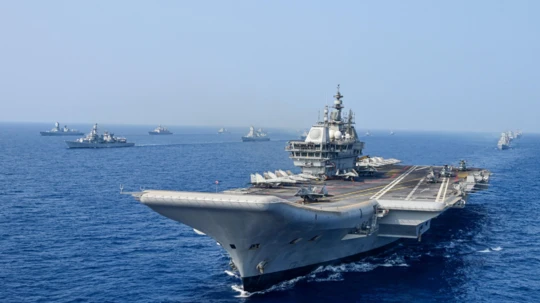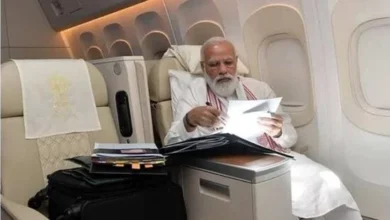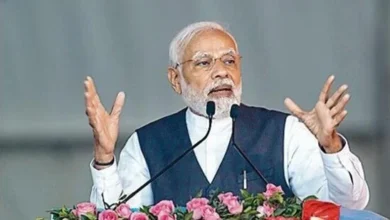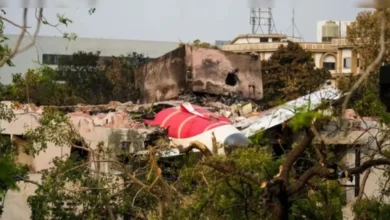Operation Sindoor Embodied New War Doctrine: Navy Chief Says Terror Now Warrants Warfare

The Indian military has turned a doctrinal corner-and the Navy is now sailing with its guns loaded for more than just war games. In a message as clear as a missile lock, India has declared that any terror attack on its soil will be treated not just as an internal threat but as an act of war, worthy of a full-scale military response.
That message was broadcast loud and clear from the deck of India’s warships during Operation Sindoor in the wake of the April 22 Pahalgam terror attack.
Speaking at the Naval Investiture Ceremony 2025, held at the newly inaugurated Nausena Bhawan in Delhi, Navy Chief Admiral Dinesh Kumar Tripathi broke it down. “This rapid and measured response not only showcased our strategic reach and maritime dominance, but sent a clear message of resolve, forcing our adversary to plead for ceasefire, I would say, just in time,” Admiral Tripathi said addressing the investiture ceremony.
Pahalgam To Persian Gulf: Operation Sindoor Played Out Across an Entire Maritime Theatre
The Pahalgam attack, which killed 26 civilians in Jammu & Kashmir, was followed by a rapid escalation in the Arabian Sea. Within hours, Indian Navy surface combatants and submarines had surged into forward positions, including some reportedly as far west as the Gulf of Oman. Aircraft from the Naval Air Arm conducted long-range ISR sweeps, keeping tabs on Pakistan Navy movements and any hostile maritime chatter.
By the third day, Pakistan quietly reached out for de-escalation, even as India carried out precision air and missile strikes on terror launchpads in Pakistan-occupied Kashmir. India’s western seaboard was turned into a zone of controlled aggression, with no-fly advisories, restricted merchant marine corridors, and reports of Indian submarines taking deep cover. The Navy didn’t fire a single shot-but it didn’t need to. Its presence was a threat, and its posture was a message.
Naval Doctrine Now Aligns with Land-Air Force Posture on Cross-border Terrorism
This wasn’t just about retaliation-it was about signalling. The shift in doctrine, which quietly took shape post-Uri and was hardened after Balakot, has now been fully baked into naval thinking. Terror is war. And war will now invite a theatre-wide military response-land, air, or sea.
“As we navigate an era filled with a complex and rapidly-changing global security environment, the role of the Indian Navy is more critical than ever,” the Navy Chief stated.
China and Pakistan, meanwhile, were less enthused. While Pakistan’s navy stayed docked in Karachi, Chinese maritime surveillance drones operating in the Arabian Sea reportedly pulled back for a cooling-off period. Even as the Navy showed teeth, Admiral Tripathi took time to honour the sailors and officers who’d made these operations possible. Awards like the Yudh Seva Medal and Nao Sena Medal were conferred on personnel from recent missions, including Operation Sindoor and Operation Sankalp in the Persian Gulf.









